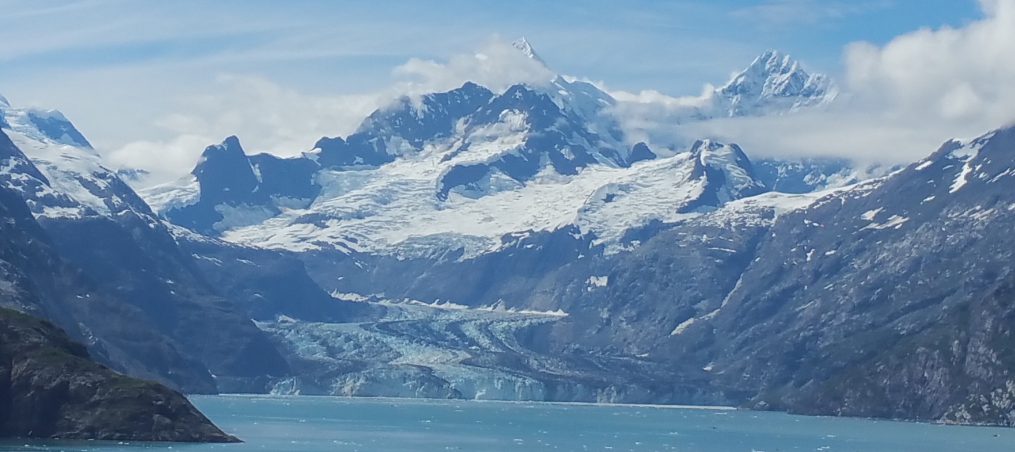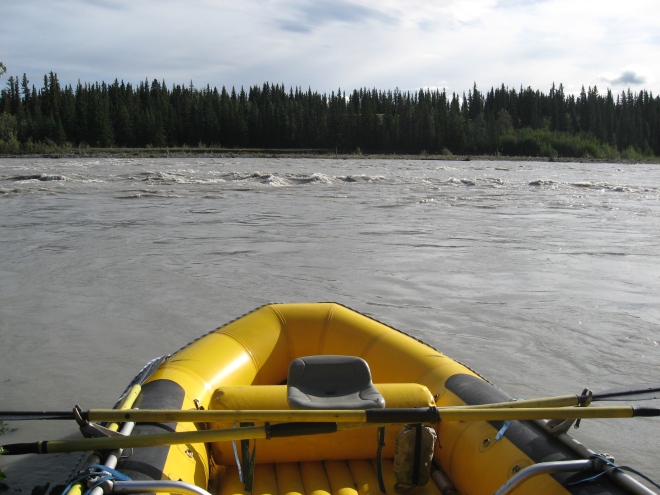
I’ve been thinking a lot about Browning, Montana. Now for most people this means absolutely nothing. Unless traveling through Glacier National Park, most would have no reason to know Browning let alone even hear of it! Browning sits at the base of the mountains, and when visiting during the winter months, you’d think you were going to be blown back to Kansas as the wind whips down the side of the mountain amidst blowing snow into this small town. Browning sits within the Blackfeet Indian Reservation and is neighbor to one of the most beautiful and spectacular national parks around, even during the dead of winter.
I never knew much about life on a Reservation until I had the opportunity to visit on three different occasions, chaperoning with high school students. It’s a rather unique experience because much of life is contained to the particular space, not only because of the heritage, but also practically there is nothing in sight for hours All you see are endless fields. Needless to say, groceries are quite expensive since there’s no competition and requires more to import into town, addictions run rampant, education is less than stellar, poverty only continues to escalate, and opportunity for long-term work and success has all but vanished beyond any visitors from Glacier who straggle through during the summer months.
So why has it been on my mind? Well, I’ve been spending this time of pandemic back at the town I grew up in and spent more than half my life. Since then I’ve not only visited Browning, but Third World countries, various places around this country, as well as Europe and Israel, so I’ve had the chance to see and experience many places over the course of my life. Yet, here I am, back where I began. I have seen, though, many similarities to some of the places I have visited, like Browning, and this town which I now find myself writing. No, it’s not an Indian Reservation, but has become similar to many other small, more rural towns in America. Like Browning there is but one grocery store with high prices. At a normal time, it’s much cheaper to drive to the Wal Mart fifteen minutes away. Most industries have all but left, and driving through the “downtown” area, a place I spent hanging out with friends in all types of weather, is vacant, dilapidated, and mirrors a war zone much more than the booming feel it had as a kid and teenager. Unless you hit the one red light in town now, there isn’t much reason to stop anymore.
Just like ourselves, when life simply becomes about survival, rather than thriving and booming, as many small towns have become, we begin to attract people who are like-minded. We begin to become depleted without much vision or purpose along with a lack of funds. Learning begins to falter in education systems unable to keep up with current trends, even more glaring during this time. Creativity seems to be all but lost as to how to move forward. We literally become stuck between two worlds, seemingly at odds with one another, when in reality we’re at odds with ourselves, more often than not. It is, after all, a small town with a big heart. However, it’s a hurting heart which doesn’t beat as quick as it used to in days past, weighed down. Like most things, it has a lifespan, but it doesn’t mean it has to end.
If you don’t know the history of Reservations, the long-term intent was an extinction of Natives. It was not some kind of gift to them but rather a way of ridding the country of a problem. They too become trapped between tradition/heritage and the guilt of losing it or sacrificing it for a new way of life, or better yet, thinking. Like most of our problems as a society, we’d rather try to get rid of it than to deal with it, but unfortunately in the process of trying to be rid of it only tends to deepen it, including the resentment and anger associated with it. We’ve seen some of the problems rear their head during this time of pandemic, consistently finding ourselves stuck and reacting, as if playing a game of whack-a-mole all with a silo mentality in a global world. It was Einstein who’s quoted saying, “Problems cannot be solved with the same mindset that created them.” There’s much truth to the statement. Yet, we try and it moves us to the place of confinement, unable to let go despite a wanting to move forward. We see it not only in small towns but in cities and in the country as well.
I’ve only had the experience of living in the city of Baltimore in my life so it’s the only one in which I can speak. Like small towns, it lacks a vision and is always behind the eight ball in dealing with issues. The number of lives lost to murder and homicide is staggering. There is, though, also a tension which exists. With the lack of vision on a larger scale for a city like Baltimore, neighborhoods take it upon themselves to change. You can see it driving through various locations. For those of us wanting to see a bigger picture for such a place, it looks like an experience of gentrification, and is on some level. It’s pushing the problem to other locations and often feeding into the level of crime existent in the neighborhoods. Like minds gravitate to like minds. If life is about survival, it’s about survival and we’ll go to a place where we can simply hang on for dear life but it’s not a mindset which will bring about change because it’s not even possible when in triage. Parts of cities, small towns, Reservations, end up becoming about extinction than about booming and thriving, a place to die. It feels rather hopeless.
Yet, it doesn’t need to be about blame or feeling hopeless. We often settle for a victim mindset because we’re comfortable there. There’s a sense of safety there because I can avoid looking at my own life and actions as to how they have contributed to the problem. It’s easy to blame the federal government for creating Reservations. It’s easy to blame suburbanites for fleeing cities for a “better way of life”. It’s easy to blame outsiders coming into small towns and destroying them and making them unsafe. But when looked at through the lens of a mindset, it should not come as a surprise. Rather than being in the uncomfortable place of change and letting go of what no longer works, we’d often rather settle for one or the other, past over present, tradition over change, the way it was over the way it could be. We don’t have to choose, in this regard, but rather take the wisdom of the past, the learned experiences, and allow them to be the framework for the future. Sure, there is a letting go needing to take place, even if it’s our anger and resentment for a life which hasn’t necessarily turned out the way we wanted it to be or the feeling of being overwhelmed by all which needs to be done. Change isn’t a leap but rather a step-by-step process, and before you know it, you’re on the other side of the river, once again booming and thriving.
It takes a will and desire for change, an acceptance of our present reality as it is, not in the illusion we often create it to be, and a heart freed of the hurt which has held you back. Whether it’s individuals, towns, cities, countries, or even companies, if they cling too tightly to what was and not wanting to change, you’ll always be playing from behind because life has become too cluttered. We become victims and do what we’re so good at, blame. It’s not to say we don’t take responsibility for problems which exist. If it is a problem plaguing any part of humanity or this world, we all have a responsibility. It’s not just the neighbor, the mayor, the president, Congress-men and women, or anyone else. It’s a mindset and mindset is the hardest to change. It can only be changed by a higher consciousness and this time is providing us the space to move to a deeper and yet higher place in our lives and society. We have a responsibility to one another, not just to ourselves. We mustn’t create a safe space for ourselves and forget about everyone else; that’s selfish. We must create a world which seeks the common good of humanity.
It is a daunting task but it’s step by step. In order to become unstuck we must make the conscious choice to do so, to have the desire to be free in order to move forward. This place of tension in which we find ourselves, between pre-pandemic and post-pandemic, will either paralyze us or free us and our imaginations for a better world. I’ve seen both at play daily. Hunkering down in great fear will only continue to paralyze you and deepen the anger and resentment which already existed. Yet, being cautious and using time wisely, as we used to say back in the day, can bring about great change in the future. It’s a time for self-reflection for all of us as to what world we will choose to live in as we move forward and begins with not only a vision for our own lives but for our towns, cities, nation, and world.

